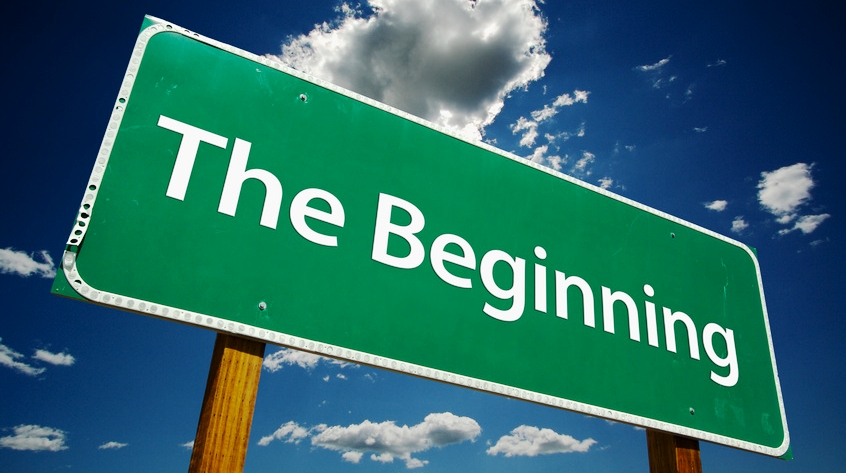
Polls consistently show that the principal issues on Americans’ minds today are unemployment and jobs. Related to these are fairness and inequality, the lack of real opportunity. Reduced to its essence, the real issue is jobs and opportunity – the focus of this piece.
Let’s leap into the heart of this topic because a dearth of jobs and opportunity is a disease that affects millions of Americans today. The real issue is creating income streams. In the recent past, full employment in America was defined as a jobless rate of 6 to 7 percent. It is currently at 8.2 percent, considerably higher among African Americans, in high-density urban areas, and in rural areas of the country. Among those 65 and over, the unemployment rate was 6.8 percent several years ago – the highest ever. If you include those who are working part time because they cannot find full-time work and those who have stopped looking, the broader unemployment rate approaches 16 percent; perhaps more. We would be lucky to see 7.5 percent jobless rates in the near term.
Here is what we know: In an era of polarized government, the kind of public/private sector partnerships on legislation to create real jobs through Infrastructure Legislation, for example, is stymied. The two principal political parties are mired in an insane ideological struggle over whose approach will produce the greatest number of jobs. The jobless, meanwhile, are on the ropes, desperate for solutions, and susceptible to the blandishments of those most adept at stoking fear and divisiveness. Greed remains the order of the day for those who would sacrifice the rest of society for the wealthy.
The private sector insists that it is shifting jobs abroad, or refusing to invest here at home, due to economic “uncertainty.” CEOs say the cost of American labor is excessive and that their customers are in foreign markets. Demand here at home, these executives insist, is weak and they are merely adapting to market conditions. Of course they presume not to be held accountable for this state of affairs.
My suggestion: Join the ranks of those taking charge of their destiny. It is what you do with your current circumstances that changes your life and improves the probability for your success. You have to decide how you want to live. That is conscious choice!
“It is our philosophical set of the sail that determines the course of our lives. To change our current direction, we have to change our philosophy not our circumstances.” Jim Rohn
There is an appreciable shift in the public’s mood today regarding choices to build and sustain a viable future. Previously, that meant increasing skill sets or seeking more education or technical training to qualify for better jobs or positions. Some became entrepreneurs on a part-time basis.
In 2012, many part-time entrepreneurs are now full time. Sustained high employment along with an assault on workers’ compensation, benefits and the right to collectively bargain, combined with the larger assault on the middle class, has forced many Americans to take more personal responsibility simply because they want more from their lives.
Yes, there are those I meet regularly who argue that now is not the time to assume the risks of starting your own business, or becoming an entrepreneur. I ask, “Why not?” The reality is, historically, more businesses are started during and after recessions than during periods of prosperity. My research revealed that Walt Disney Company, Microsoft, and Apple, to name a few, were started during economically turbulent ties.
The American economy is still weak and struggling to sustain forward momentum. The most insidious result has been the chronic unemployment despite the more than 4.7 millions jobs created since 2009.
Taking more personal responsibility means taking the long view. In 2008, there were approximately 25 million small businesses in America. More than half were home-based businesses. Put another way, more than one in eight households included a home-based business. The numbers (reported in SUCCESS magazine) are impressive: almost 500,000 new businesses created each month translate into slightly more than 15 percent of the U.S. population involved in running their own business. This is the new job security; this is becoming the route to a more satisfying lifestyle, greater financial opportunity, and the opportunity to live a life of greater impact.”
I am suggesting a manageable level of entrepreneurial enterprise within the scope, resources, and ability of millions. Many find this statistic motivating: “More than 12 million jobs have been eliminated from the U.S. economy since December 2007” according to the Brookings Institute. They report that it could take 12 years to recreate what has been lost.
Many individuals, and families, looked to the direct selling and network marketing models for a different financial outcome. There are other models as well. This means simply that economic activity surrounding small-business ownership is increasing.
If you read SUCCESS magazine and SUCCESS FROM HOME, FORTUNE, and other business publications, you learn that companies using the direct selling model are processing more applications than ever. Interestingly enough, these statistics reflecting the number of applications being processed are not reflected in the Department of Labor’s statistics nor are they recognized by most economists as significant. The Direct Selling Association (DSA) reported in 2010, direct selling companies generated over $125 billion in revenue in 150 countries and more than $33 billion in the U.S. alone. The federal government and economists may be obscuring these facts, but Americans are increasingly aware of the growing power of this industry.
The direct selling model is not new; it is over 150 years old. I would guess broader acceptance of the business model was obscured by the historical preference for options in the private and public sectors. This was the mindset for a different economy. This is now 2012 – and we need to adopt a different mindset!
A few months ago in a Special Supplement to The Wall Street Journal BY Direct Selling News, Scott Van Winkle, CFA, and Research Analyst at Canaccord Genuity, make the point that “the economic impact of direct selling companies for the United States and for the world simply cannot be overlooked or swept under the rug.” He went on to say “there is finally broad confidence in the direct selling model in the private equity community. The bases for their appeal are “the efficient business model, rapid growth, and generally low on-going capital investment after the initial surge.” This is what appealed to me. Rarely have I seen viable businesses built by so many with so little capital.
Finally, Paul Zane Pilzer, professor of economics and economic advisor to three American presidents, said, “the real challenge is to replace lost jobs with new earnings opportunities, and provide much-needed training.” He sees direct selling as the answer because “the direct selling business model has always had a competitive advantage in the training it offers, both in business and personal skills.” You are retraining while pursuing something entirely new; an opportunity when no other is being offered. Give it some thought!

